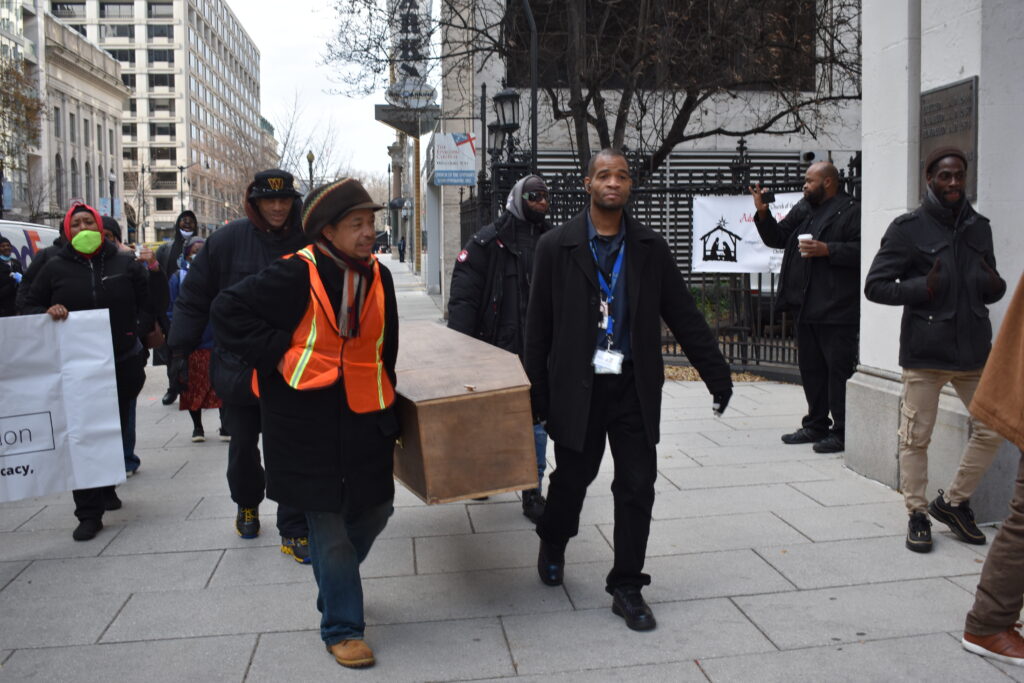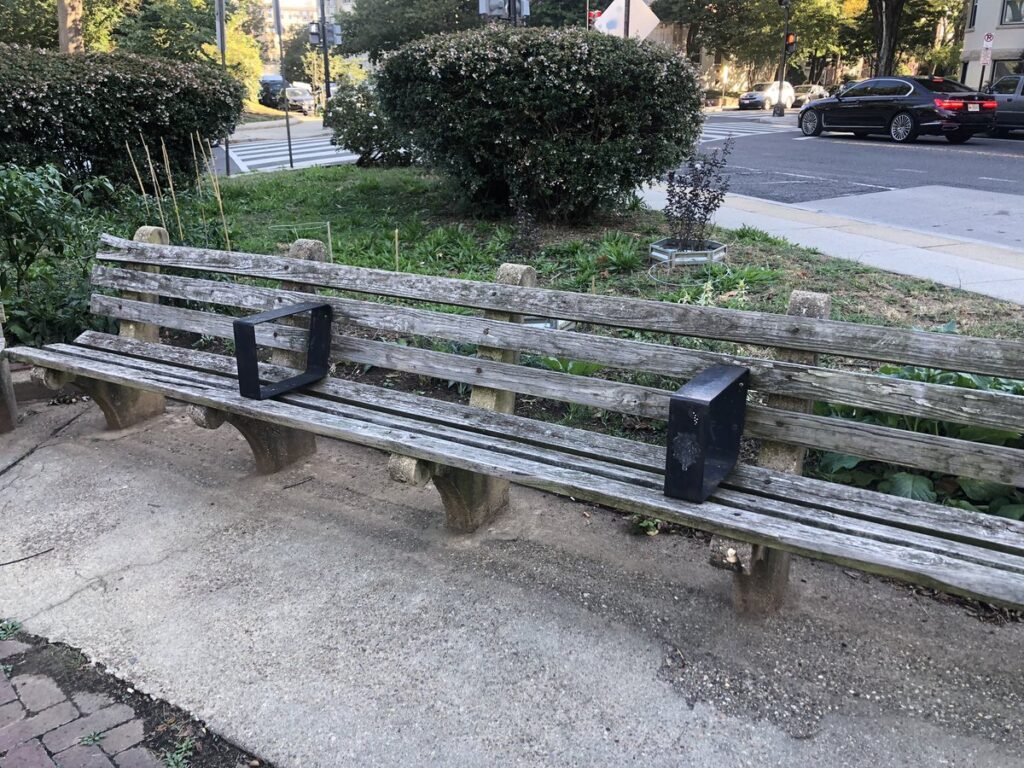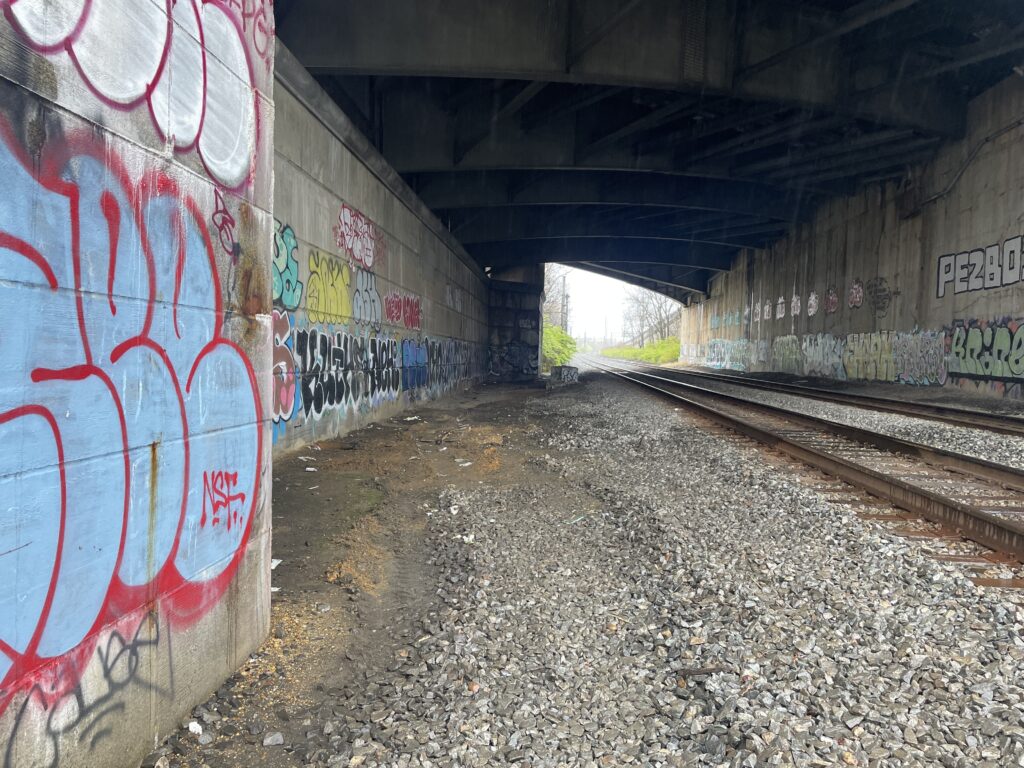As the year came to a close, three housing advocates stood at the front of the Church of the Epiphany, reading a list of initials to honor those who died while experiencing homelessness in 2023.
The memorial was part of the 11th annual vigil remembering people who died while homeless in the past year. The two-day event began Dec. 20 and was hosted by the People for Fairness Coalition (PFFC), a group of formerly unhoused people that advocate for and provide outreach to homeless community members.
Last year, at least 90 people died without a home in the District, according to a list compiled by The Community Partnership for the Prevention of Homelessness and service providers. At the vigil, each person is remembered by their initials and age, to protect their privacy. The youngest person honored was S.G., who died at 22 years old. The oldest was D.A., age 82.
Two-thirds of people who died unhoused had housing vouchers and were waiting to move into their apartment, according to the list provided by PFFC. Although the mayor and D.C. Council have made record investments in housing assistance, inefficiencies in the process mean people are waiting more than four months on average to get into housing.
The vigil is an annual reminder of those who often die unnoticed in the city.
“I always hope that it will be the last year that I have to do this,” longtime housing advocate Dana Woolfolk said at the event. “I’m always hopeful that we will finally be able to figure out how to provide housing for everyone who needs it.”
The vigil began on Dec. 20 at Luther Place Memorial Church, where advocates spoke about their experiences with homelessness and honored those who died. The group then marched to Freedom Plaza, carrying an empty coffin and chanting “Housing is a human right.”
“It’s really, really sad that we have to have these vigils every year, because there should be no one unhoused dying without the dignity of a home,” said PFFC assistant director Rachelle Ellison at the opening ceremony.
Last year, 77 people were remembered at the vigil. This year, at least 90 people died while experiencing homelessness, largely due to intoxication and natural causes, according to data from the medical examiner’s office. However, advocates said lack of access to health care while homeless is also a significant factor.
The first day of the vigil ended with a community gathering to share a meal. D.C. Ward 4 City Councilmember Janeese Lewis George attended to honor Ward 4 resident David Ashburn, who died in July. Ashburn experienced homelessness in D.C. for 30 years and had recently been matched to a housing voucher. Lewis George said her team worked closely with him to get him housed.
“He was a part of our community. We loved him, our community loved him,” Lewis George said. “His life mattered. And the lives of those we are honoring today, who lost their lives unhoused in the city matter.”
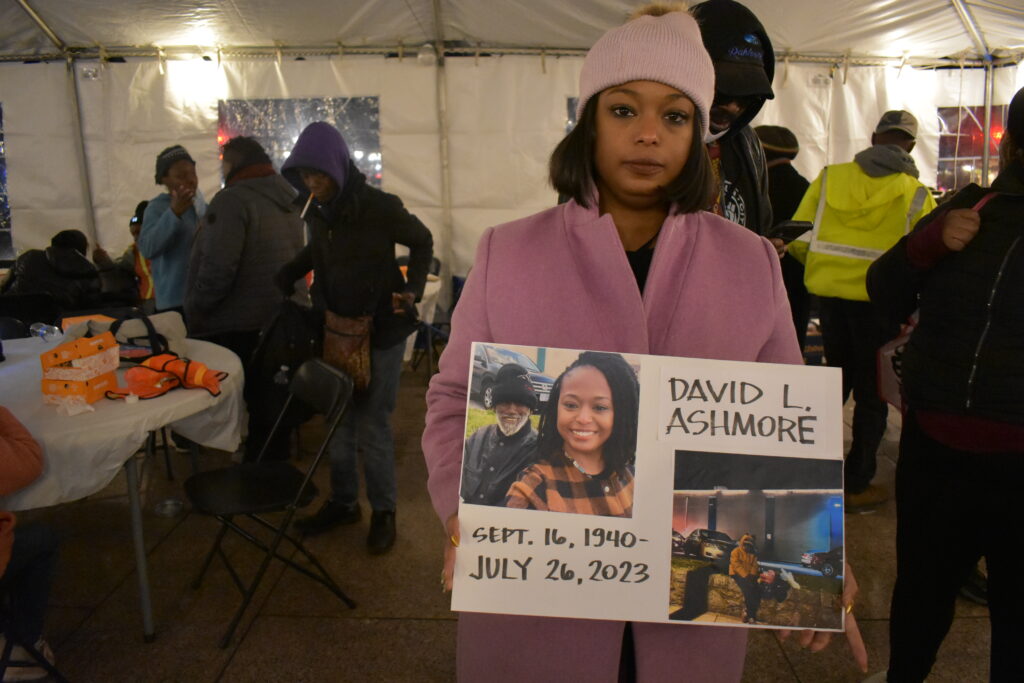
Attendees also remembered Leo Colter, who was shot in McPherson Square in October.
“He was a great big teddy bear,” Ellison said of Colter. “He was very respectful.”
Ellison said PFFC served Colter every week through outreach services. When she discovered his ashes went unclaimed, she went to retrieve them and give him a proper burial, as she had done for others who died unhoused.
However, the medical examiner’s office told her there would be a $485 charge to pick up his ashes, something that had always been free. Now, PFFC is advocating that D.C. waive fees or provide funding for nonprofits seeking to honor those whose remains aren’t retrieved by friends and family.
“These are human beings that already lived a very traumatic life, and why can’t they be put to rest in a proper way?” Ellison said. “If their life was nothing but pain and agony, can’t we, even if just in death, give them some type of recognition that they existed in this society and on this earth?”
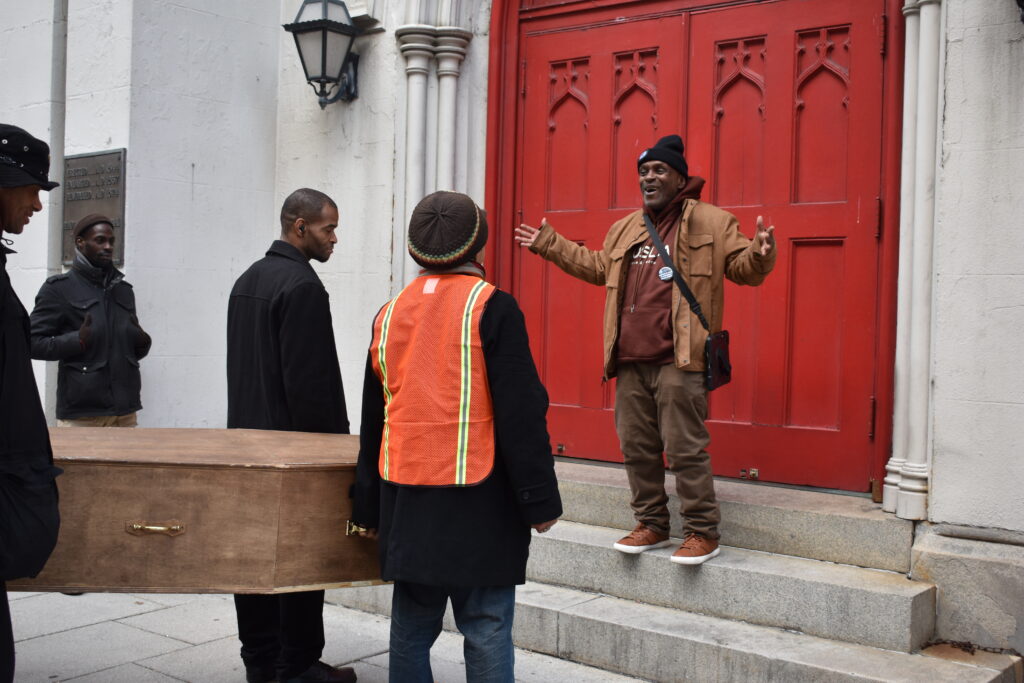
Why do so many people die?
Each year, dozens of people die while experiencing homelessness in the city, often at ages much younger than the general population. Being homeless increases the risk of experiencing violence, trauma, health and medical problems, mental health issues and substance use disorders.
For many, illness and injury can also lead to job loss, which means losing access to health insurance and the means to pay for medical treatment.
Together, an increased risk of health care problems and barriers to treatment mean those who are homeless die 12 years earlier, on average, than the general population in the United States.
Data obtained by Street Sense from the medical examiner’s office shows at least 84 people died while homeless in 2023. About 62% of those deaths were accidental due to intoxication, which includes overdoses. Just 14% of deaths this year were due to natural causes, down from 22% last year. Four people were victims of homicide in 2023.
It can take up to 90 days to determine cause of death, the Washington Post reported, which means the majority of deaths in winter months aren’t included in those numbers, accounting for the difference with the numbers from the vigil. As a result, the percentages could change when more data becomes available.
Nationally, homeless people have been acutely impacted by the growing fentanyl crisis. PFFC Co-director Robert Warren said many people in D.C. are struggling in the aftermath of the pandemic, resulting in more mental health and substance abuse problems.
“Coming through the pandemic, it’s been hard on all of us. And it’s been a lot of trauma for the community,” Warren said. “We’ve got to do a better job of dealing with people’s trauma.”
Warren said many people are dying from preventable causes and need health and wellness support to begin healing from the trauma that they’re been exposed to while unhoused.
Advocates also argue people are on the streets longer than they need to be. Long wait times between getting a housing voucher and getting into housing were a top issue at last year’s vigil – more than half of those remembered in 2022 died while waiting for housing.
Each day a person spends unhoused means an increased risk for experiencing violence, extreme temperatures, exposure to illness and difficulty obtaining medical treatment and preventative care.
On the morning of Dec. 21, advocates and community members hand-delivered budget recommendations to each city council member’s office. PFFC recommended allocating $1.6 billion to fund housing programs, new shelters and burials or cremations for people who die while homeless.
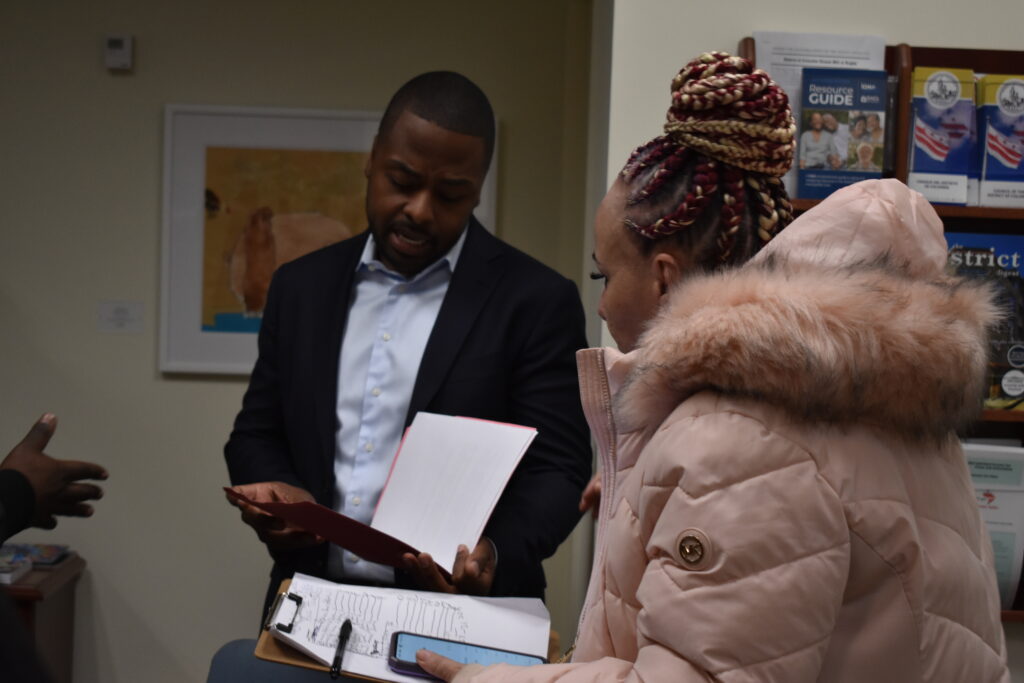
The group met with Ward 5 Councilmember Zachary Parker, sharing concerns about the quality and efficiency of current housing services available and advocating for better training for case managers.
“I will take this to heart in terms of advocating for more funding for these programs,” Parker said. “But I also really want to think about how do we hold government accountable, how do we hold meaningful oversight?”
The vigil ended with a memorial service and a community meal at the Church of the Epiphany. The service was held on National Homeless Persons’ Memorial Day, in tandem with vigils nationwide.
“Today, we remember people we’ve lost and honor their memory,” said Ann Oliva, CEO of the National Alliance to End Homelessness, speaking at the church. “But it’s important that we don’t just remember and honor them at memorial services. We have to carry their memory and that hope with us when we feel like this work is too hard. When we feel that we aren’t making enough progress, when we feel frustrated and angry. Hopefully when we remember, it helps to provide us with a new purpose as we go forward, as we stay in the fight.”
This story has been updated to correct a quote from Lewis George.
